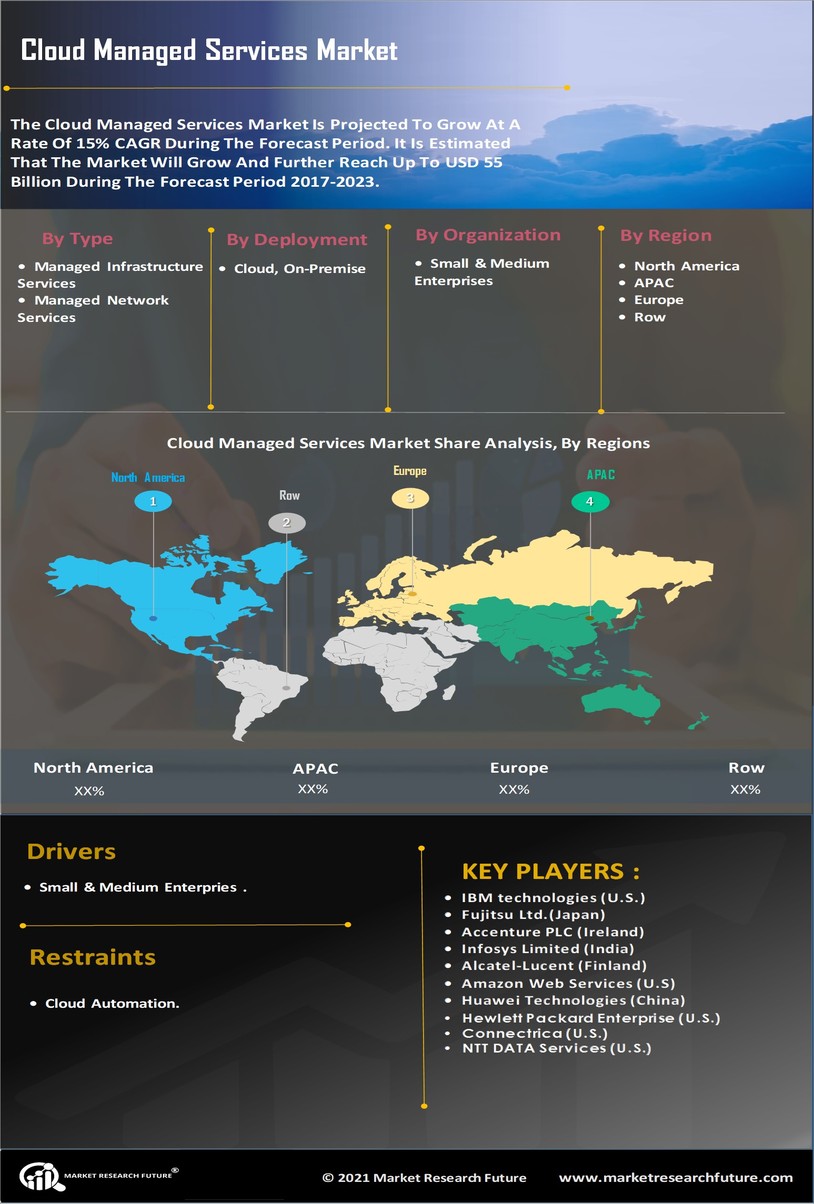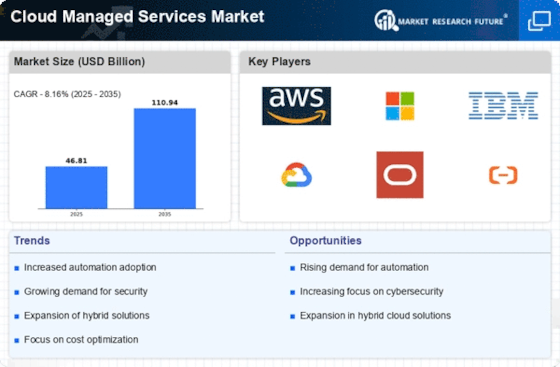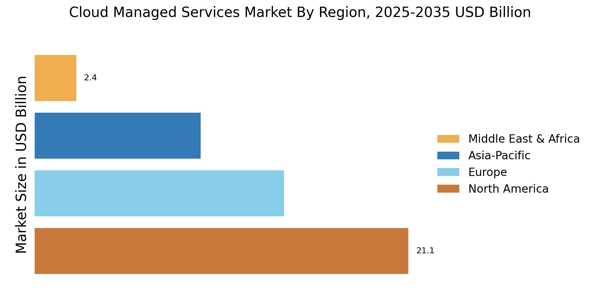Rising Demand for Scalability
The Cloud Managed Services Market experiences a notable surge in demand for scalable solutions. Organizations increasingly seek flexibility to adjust their IT resources according to fluctuating business needs. This trend is particularly pronounced among small to medium-sized enterprises, which often lack the infrastructure to manage rapid growth independently. As a result, cloud managed services provide a viable alternative, allowing these businesses to scale operations without significant capital investment. According to recent data, the market for cloud services is projected to grow at a compound annual growth rate of approximately 15% over the next five years. This growth is indicative of a broader shift towards cloud-based solutions, where scalability is a critical factor driving adoption.
Integration of Advanced Technologies
The integration of advanced technologies is a key driver in the Cloud Managed Services Market. As businesses strive to remain competitive, they increasingly turn to cloud managed services that incorporate cutting-edge technologies such as artificial intelligence, machine learning, and big data analytics. These technologies enable organizations to derive actionable insights from their data, streamline operations, and enhance decision-making processes. The market for AI-driven cloud services is expected to witness substantial growth, with projections indicating a potential increase of over 20% annually. This trend underscores the importance of technological integration in cloud managed services, as organizations seek to leverage these innovations for strategic advantage.
Enhanced Focus on Business Continuity
The Cloud Managed Services Market is significantly influenced by the growing emphasis on business continuity. Organizations are increasingly aware of the risks associated with data loss and system downtime, prompting them to seek reliable managed services that ensure operational resilience. Cloud managed services offer robust backup and disaster recovery solutions, which are essential for maintaining business operations during unforeseen disruptions. Recent statistics indicate that companies utilizing cloud solutions experience 50% less downtime compared to those relying on traditional IT infrastructures. This enhanced focus on continuity not only safeguards critical data but also fosters customer trust, thereby driving further adoption of cloud managed services.
Cost Efficiency and Resource Optimization
Cost efficiency remains a pivotal driver within the Cloud Managed Services Market. Organizations are increasingly recognizing the financial benefits associated with outsourcing IT management to specialized service providers. By leveraging cloud managed services, companies can reduce operational costs, minimize the need for extensive in-house IT teams, and optimize resource allocation. Recent analyses suggest that businesses can save up to 30% on IT expenditures by transitioning to cloud solutions. This financial incentive is particularly appealing in competitive markets, where cost management is essential for maintaining profitability. As such, the emphasis on cost efficiency continues to propel the growth of cloud managed services.
Growing Regulatory Compliance Requirements
The Cloud Managed Services Market is also shaped by the increasing regulatory compliance requirements across various sectors. Organizations are under mounting pressure to adhere to stringent data protection regulations, such as GDPR and HIPAA, which necessitate robust security measures and data management practices. Cloud managed services providers are well-positioned to assist businesses in navigating these complex compliance landscapes, offering tailored solutions that ensure adherence to legal standards. Recent findings suggest that companies utilizing managed services are 40% more likely to achieve compliance compared to those managing IT in-house. This growing need for compliance support is likely to drive further investment in cloud managed services.

















